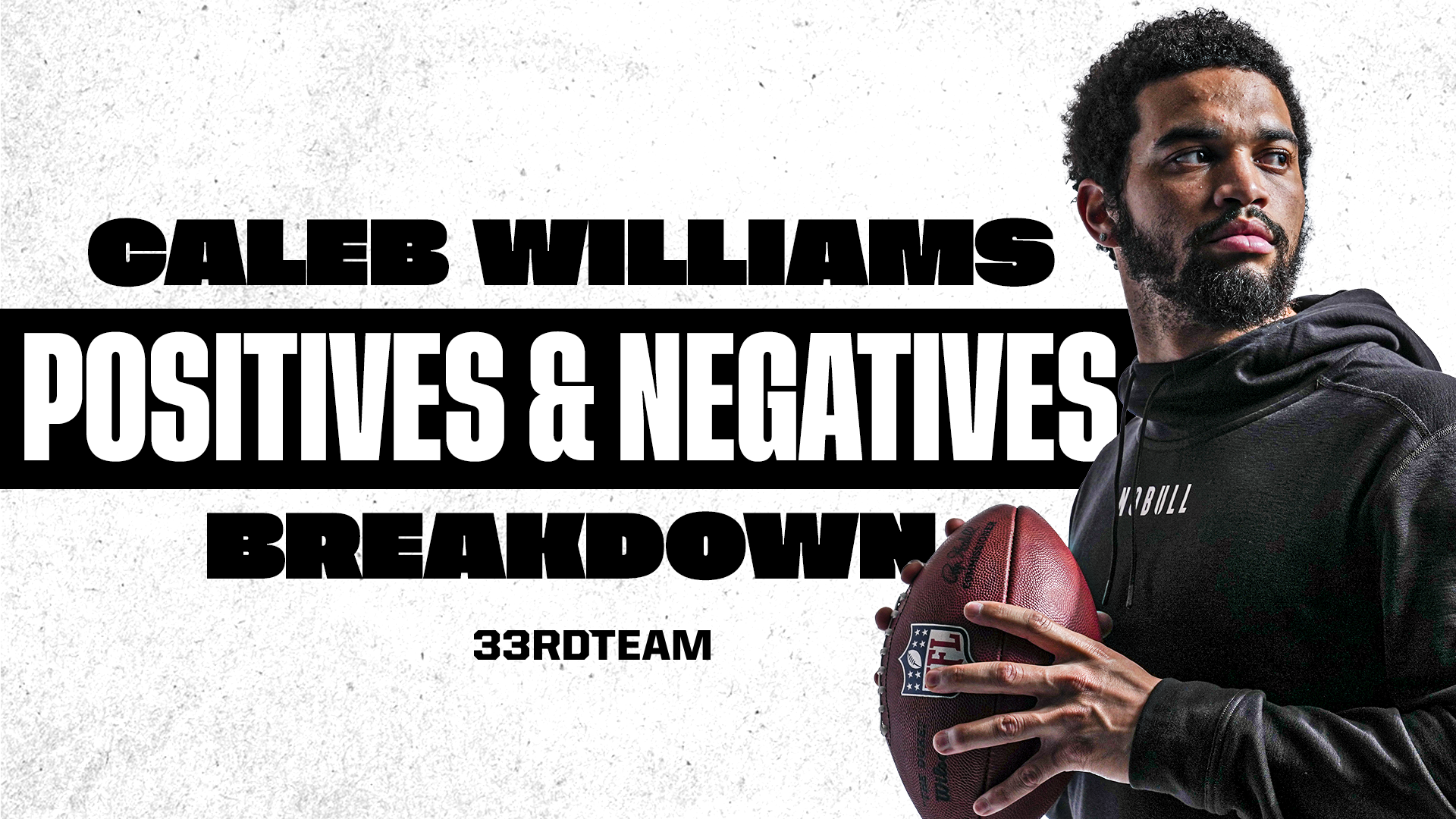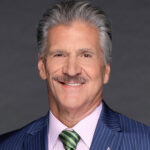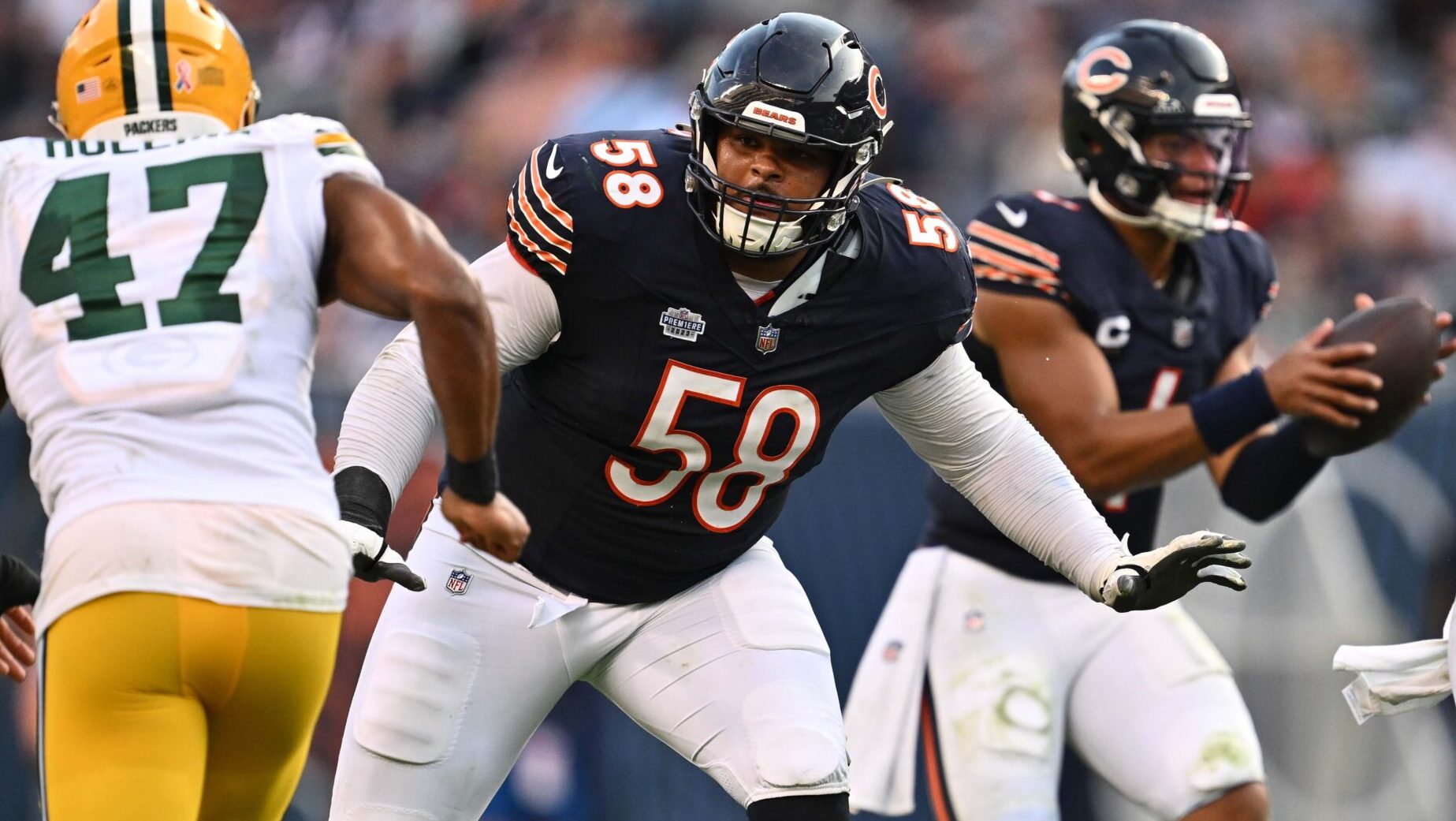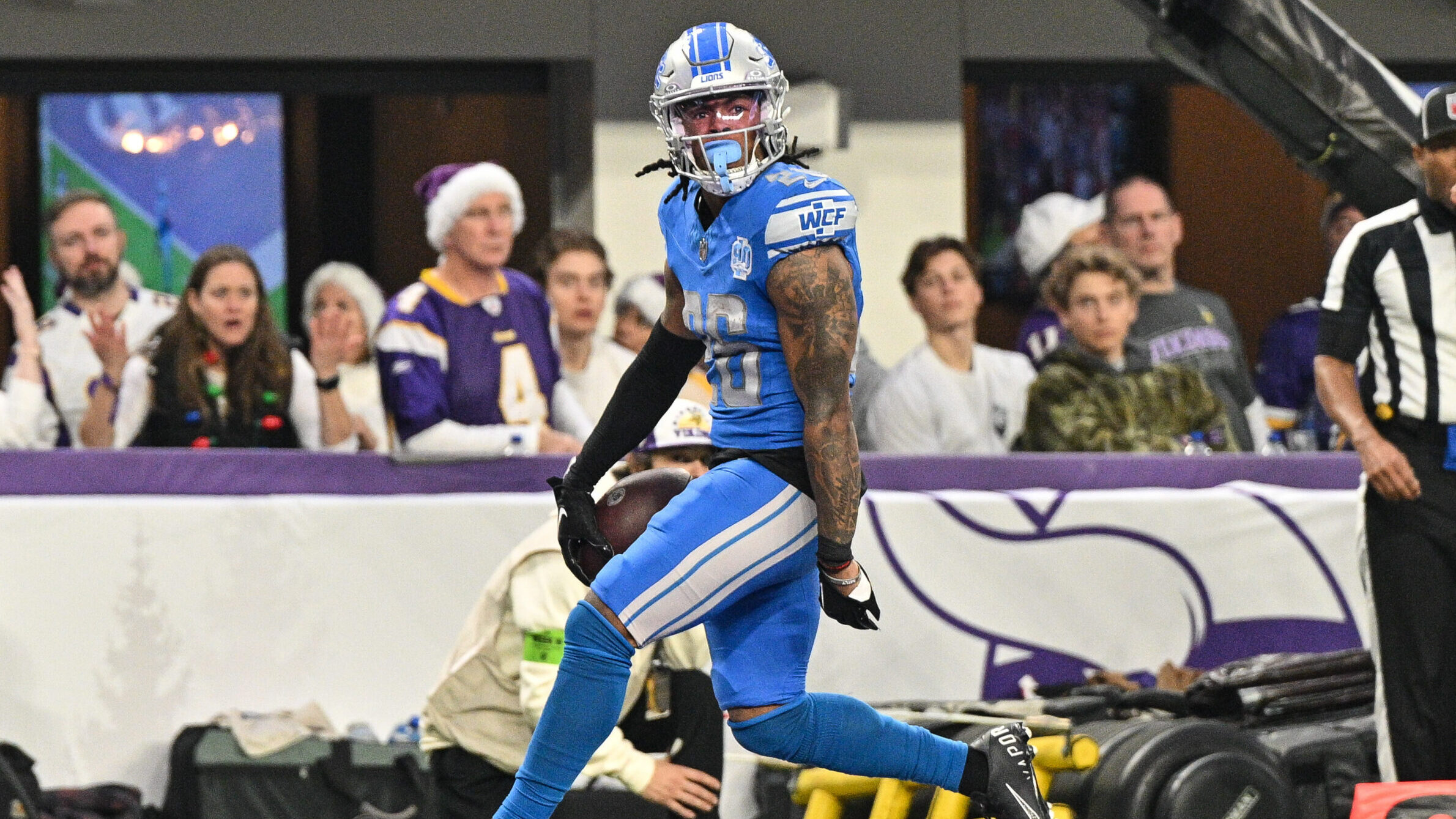Breakdowns
11/25/21
8 min read
3 Ways NFL Teams Can Promote Mental Health
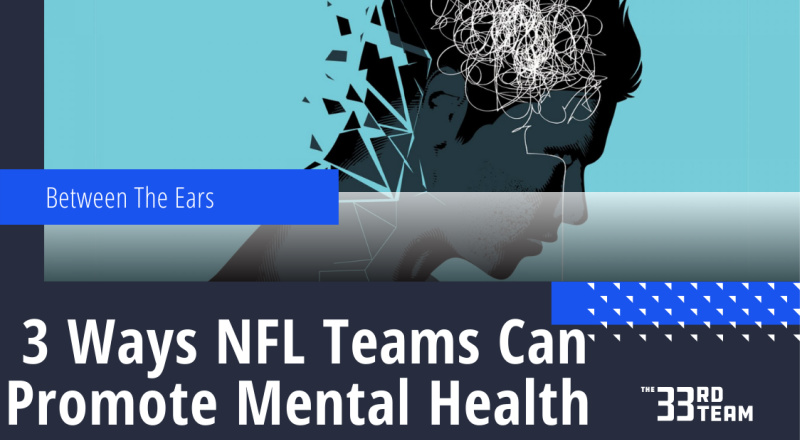
In partnership with Athletic Intelligence Measures, The 33rd Team features a weekly article on Sports Psychology and its effect on performance within the sport of football.
Athletic Intelligence Measures consists of three individuals, Drs. Scott Goldman, Jim Bowman, and Alex Auerbach. Together, the triumvirate spent 15 years creating the Athletic Intelligence Quotient (AIQ), which identifies an athlete’s mental strengths and weaknesses to aid coaches, management, and player personnel.
Each week, we discuss an important aspect of Sports Psychology with Dr. Goldman that can help football coaches, management, and player personnel learn what Sports Psychology really is, and learn how best to put it into practice.
After looking at intelligence as a competitive advantage in sports last week, Dr. Goldman takes a look at ways that professional sports organizations can improve the mental health standing within their organizations.
The awareness around mental health has grown exponentially in recent years, not only in sports but in society as a whole. Compared to how it was 20 years ago, Golden State Warriors’ Sports Psychologist Dr. Scott Goldman says the amount of growth is “amazing,” but notes that there is more work to be done in order to foster best mental health practices in sports.
“Mental health and performance are linked. When you don’t feel great, it is more challenging to perform great. And, when you don’t perform great, sometimes it can be challenging to feel great,” Goldman says. “I tell teams, ‘If the person is right, then the player is right.’”
While Goldman’s Athletic Intelligence Quotient (AIQ) helps teams identify and understand the player and how they may fit in their system, Dr. Goldman recommends a team continue to monitor and support the person’s mental health starting from his onboarding all the way through and beyond his exit from the team.
To aid teams in the process of fostering the best possible mental health practices within their organization, Dr. Goldman has compiled a list of 3 ways NFL teams can promote mental health right now.
Step 1) Begin with Onboarding Each Individual
Onboarding is the process by which new employees or team members acquire an understanding of knowledge and skills to become effective in their roles.
Focusing on acclimating players to their new environment is important, and understanding how best to do that at an individual level can help each player reach their full potential.
“For over 10 years and presently, I perform pre-draft interviews of players and pre-hire interviews of coaches and staff. Many misperceive this role as 'Doc, should we take this guy?' Or they say, 'Doc, should we hire that guy?'
"When interviewing, my goal is uncover important psychological information that helps the organization be more informed so they can make well educated decisions,” Goldman says. “If we understand the player or coach in-depth, then we can develop resources that foster their growth on and off the field.
"A comprehensive athletic profile consists of 4 buckets — physical, experience, intelligence, and personality. Teams hire me to take ownership of the intelligence and personality buckets, which I measure these domains with the AIQ and engage in a thorough interview.
“Those are the two pieces of information that I rely on heavily to get a good perspective on the person behind the player, which helps for a smooth onboarding process.”
Step 2) Add Mental Health Resources That Cover the Full Spectrum of Care
While some suggest that teams divide their mental health care practices and performance-based practices, Goldman suggests that ideally a program should cover the full spectrum of care.
“Best practice consists of resources that provide the full spectrum of care from emotional distress to optimization,” Goldman says. “While some suggest that the work be seen as bifurcated, I think it serves the player and team best when you see it as a blend, because after doing this for 20 years, I have experienced the line between mental health and performance blurs.
“For example, if someone is struggling at home and then doesn't practice well, is that a performance issue? Or is that a mental health issue?
“If someone is struggling on Sundays, and then transfers their frustration onto relationships at home, is that a mental health and wellness issue because we are talking about their marriage dynamics or parenting issues? Or, is it a performance issue?
“I find that performance and mental health is a blend and not separation of domains. It is essential that the resource, whether it is a person or a program, has sophisticated and comprehensive training that covers the full spectrum of care. If it is going to be a program with more than one provider, role clarity and collaboration is a must.”
Step 3) Establish and Maintain a Healthy Environment
“To oversimplify things for a moment, there are relationship focused coaches and accountability focused coaches,'' Goldman says. “Whether you go with one path or the other, the environment can at times become out of balance, and either extreme can lead to poor mental health or poor support.
“For example, sometimes with children, holding them accountable is a way to show love and affection. The clarity can provide understanding and a sense of safety. But when out of balance, it can be perceived as overly punitive, which can be very painful and strain the relationship.
“On the other side, relationship-oriented coaches can help people feel compelled and valued with the goal of increasing joy.
“But when some of the attention is taken away, or if a player becomes distracted or makes an error and is not held accountable (such as if they miss a curfew), sometimes they may want to challenge the threshold of the relationship. It’s as if they are saying, ‘Do you still care about me if I do this? What about this? What if I go to this extreme? What do I have to do for you to notice me again?'
“Having an environment that is healthy is really important, and I think this leads to a sub-element of a mental environment, which is understanding what is the same and what is different. Some mental health is universal, like a clinical diagnosis such as bipolar disorder.
“Some things are more contextual or situational, such as the volatility in pro sports. The volatility and uncertainty of pro sports breeds instability, which can then breed a lot of insecurity. Even the best quarterback in the league can still watch his replacement get drafted right in front of him. Intellectually, everyone in the league accepts this truth. Emotionally, they may still feel unsettled on draft night asking themselves, ‘Am I safe? Will I get traded? What is going to happen to me next?'"
Human behavior is complicated, and as Goldman puts it, human interaction is a multiplier of complication. In order to have an excellent mental health provider, Goldman suggests that any provider, “Needs to have equally great depth in understanding both ends of the spectrum, the mental health and emotional distress, and the performance optimization.
"And at both ends of the spectrum, it is important that they have sophisticated understanding of what is universal to humans and what is different or sport specific, as well as what is unique to the NFL. For example, having a conversation with someone whose failing marriage is negatively impacting their work production is universal. Helping a coach process the emotional unrest he feels when their son or daughter comes home from school in tears because they were bullied after the team lost the game on Sunday is more NFL specific.”
You can find more information on Athletic Intelligence Measures, LLC or the AIQ Test here. To get in contact with Scott Goldman, Ph.D, please email him at info@athleticintel.com




